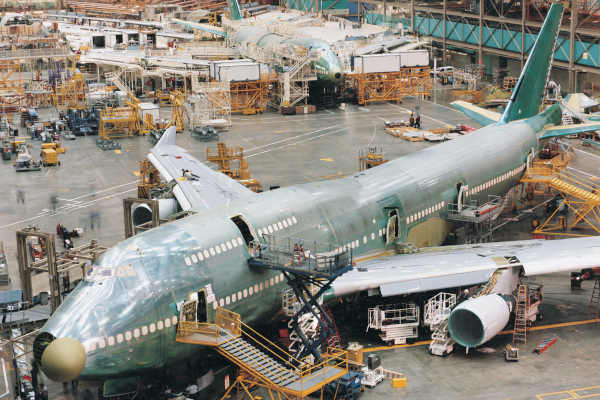While raw materials and worker shortages are well-known disruptions in the aerospace sector, preliminary research from global manufacturing tech firm TRIGO shows that 33% of late deliveries are the responsibility of the end customer.
“The reason we conducted that research is we could see in the past three or four years a kind of degradation of on-time delivery or decline of on-time delivery, and we wanted to understand where is it coming from?” says Matthieu Rambaud, CEO of TRIGO Group. “What we found out is that a substantial amount of the causes of late delivery were not supplier related, but actually they were customer related.”
The root cause of these types of disruptions was varied, but the research, which extracted and analyzed 18 months of on-time delivery (OTD) performance from January 2022 to July 2023 for around 500 suppliers in the U.S., attributed it to several primary reasons, including:
- Change of schedule
- Engineering changes, i.e., product definition maturity
- Manufacturing process changes requested by customer
- Configuration issues
- Late arrival of customer-provided material or equipment.
- Missing PO
- Zero delay or no date PO
- Late payments
What these disruptions have in common, Rambaud says, is that they are all relatively simple to correct. While many supply chain challenges the aerospace industry faces are difficult to solve in the short term, the research indicates about a third of them can be solved quickly with an enormous positive impact on overall industry performance.
“The key takeaway here is that you can act upon it in quite a short timeframe,” says Rambaud. “If customers can engage in improving their problem management process, their planning processes, one-third of the late deliveries will actually be eliminated.”
Improving processes and technology to eliminate supply chain disruptions
According to Rambaud, solving these operational disruptions will come down to implementing rigorous program management with predictive technology. Artificial intelligence (AI) is especially apt for analyzing data to help both customers and suppliers better predict their procurement and delivery needs in advance without having to make last-minute changes.
“This is not out of reach,” says Rambaud. “This is not about training a population of millions of workers to a certain level. No, it’s about day-to-day discipline and rigor. So, it is actionable.”
For example, TRIGO has developed an AI algorithm, based on data collected from its customers and suppliers, that helps it identify which suppliers have a higher risk of shipping late in the coming months versus another. In doing this, it can better use resources to steer customers away from certain suppliers and minimize the risk of operator delivery.
“In that case, technology and advanced algorithms can help us improve the overall supply chain performance,” says Rambaud.
With predictive technology on one side and focused supply chain management on the other, he adds, “there are ways and levers to improve the overall performance.”
SC
MR


Latest Supply Chain News
- 6 Questions With … Sandeep Bhide
- MIT CTL offering humanitarian logistics course
- Bridging the ESG gap in supply chain management: From ambition to action
- Few executives believe their supply chains can respond quickly to disruptions
- Technology’s role in mending supply chain fragility after recent disruptions
- More News
Latest Podcast

 Explore
Explore
Procurement & Sourcing News
- Bridging the ESG gap in supply chain management: From ambition to action
- Israel, Ukraine aid package to increase pressure on aerospace and defense supply chains
- How CPG brands can deliver on supplier diversity promises
- How S&OP provides the answer to in-demand products
- There is still work to do to achieve supply chain stability
- Blooming success: The vital role of S&OE in nurturing global supply chains
- More Procurement & Sourcing
Latest Procurement & Sourcing Resources

Subscribe

Supply Chain Management Review delivers the best industry content.

Editors’ Picks




